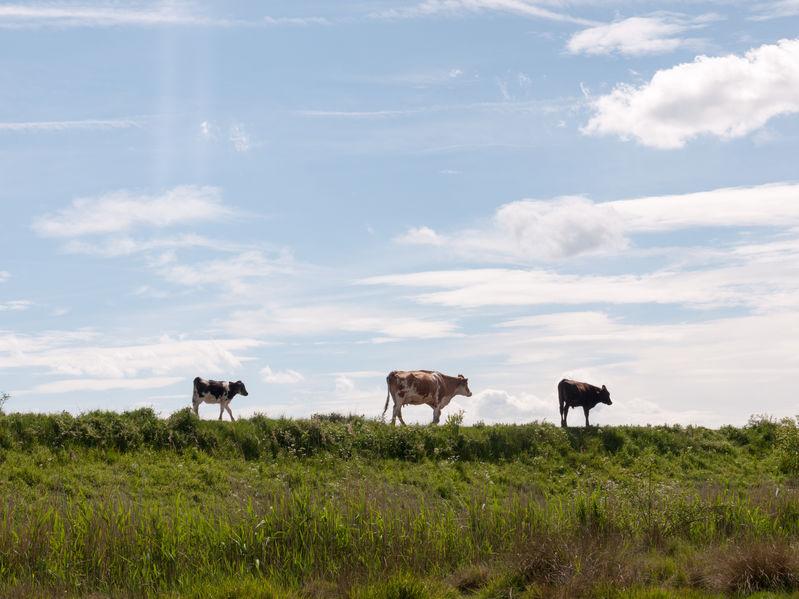
Farmers have expressed concern following comments made by Defra's former chief scientist that half of the UK's farmland should be converted to provide habitat for nature.
Prof Sir Ian Boyd, who left the post last year after seven years in the role, made the suggestion in a controversial article published in The Guardian.
In order to fight the climate crisis, he said half of the nation's farmland should be taken out of food production and transformed into woodlands and natural habitat.
Half of farmland, which consists of mainly uplands and pasture, produces 20 percent of the UK’s food, he claimed.
“Most of the livestock production in the UK is unprofitable without public subsidy,” Sir Ian told the paper.
“The public are subsidising the production of livestock to produce environmental damage, all the way from greenhouse gas emissions to water pollution.
“Why should we continue to do that? It is not sensible.”
Such a mass-scale transformation could mean the amount of cattle and sheep would fall by 90 percent.
Farmers would then be paid to restore habitats, build woodlands and prevent floods, Sir Ian suggested.
But the former chief scientist's suggestion has been met with widespread criticism from farming industry groups.
NFU president Minette Batters made the point on Twitter that it 'took two world wars to realise the error of not being able to produce enough food'.
“You only turn the food production tap off once. We cannot make the same mistake again,” she said.
The rural and agricultural arm of the Liberal Democrats Party echoed this sentiment, saying any move to reduce UK livestock by 90 percent would be 'utter madness'.
“Reducing livestock by 90% in Britain means more reduction of the Amazon rainforest as meat supply will be shipped to feed British.
“The carbon positive elements of livestock grazing on British pastures will be lost,” the group said.
Joe Stanley, a prominent farmer and conservationist from Leicestershire, said the UK must instead focus on 'realistic, sustainable' farming practices to combat the climate crisis.
Rewilding 50% of ???? farmland will just offshore our food production to countries with ?? environmental standards.
— Joe Stanley ???? (@JoeWStanley) December 31, 2019
We must concentrate on realistic, sustainable farming practices to combat the climate crisis @BBCFarmingToday @BenGoldsmith @DefraGovUK @HenryDimbleby @michaelgove. pic.twitter.com/a6vqeJP5By
It is not the first time Sir Ian has made controversial comments surrounding food and farming.
Last year, he suggested there is 'no scientific reason' to ban chlorine-washed chicken or hormone beef in any trade deal post-Brexit.
